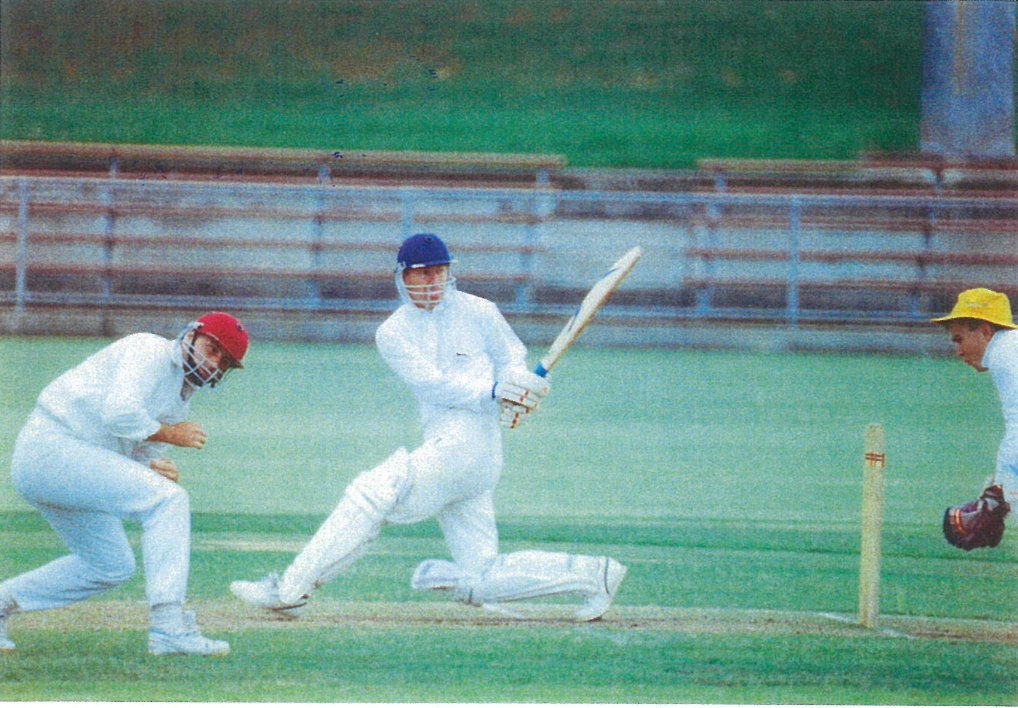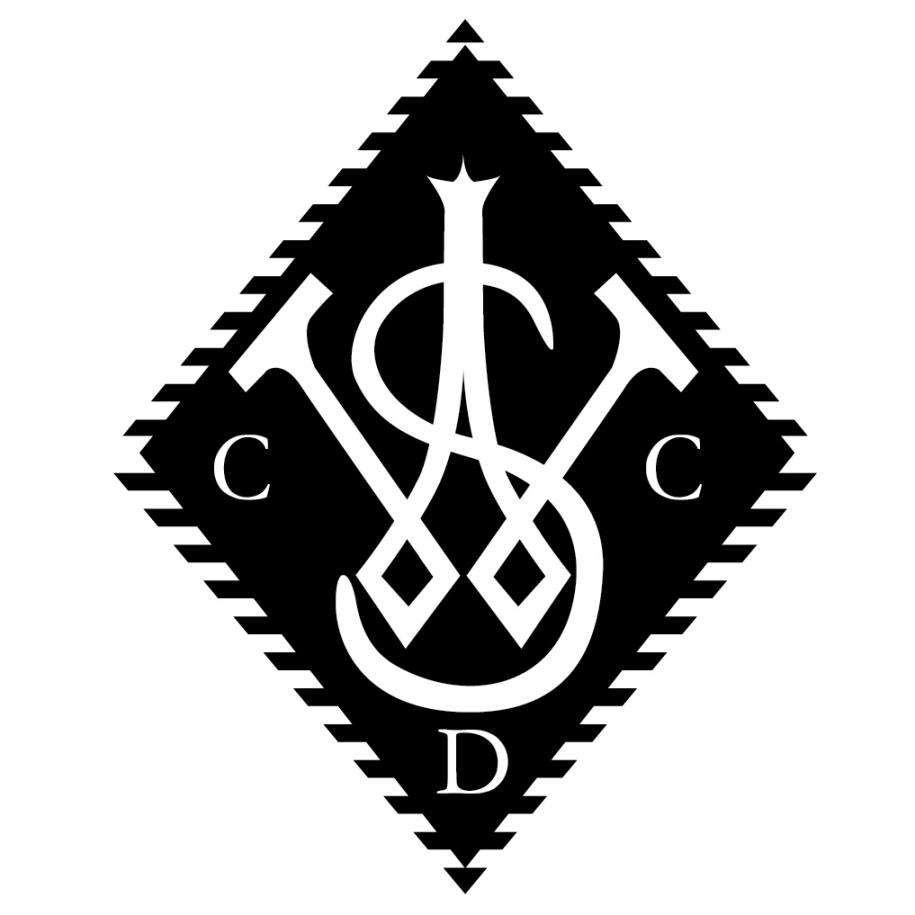The 1994-95 Centenary Season - Western Suburbs District Cricket Club
Western Suburbs District Cricket Club Sydney | August 15, 2024

The following story is an extract from our 2006 publication “Cricket in Black and White: 110 Not Out: The history of the Western Suburbs District Cricket Club”.
Western Suburbs limped unconvincingly towards its centenary season in 1994-95. First Grade finished 18th in 1991-92, then 13th and 15th, and the Sydney Cricket Association's Committee of Management made no secret of the fact that it believed there was no future for Wests in the Grade competition. No-one outside of the club expected that Wests would have much to celebrate on its 100th anniversary.
What was overlooked was that, thanks to the shrewd recruiting campaign guided by Chris O'Neil, Western Suburbs was gradually assembling a highly competitive First Grade team. Scott Jacobson, a highly experienced and accomplished batsman, was lured from Mosman with keeper-batsman Scott Atkinson. Parramatta batsman Gavan Twining (formerly a Trinity Grammar School team-mate of Peter Burkhart) and spinner Darryn Bull, from Bankstown, added depth to the side. And, crucially, the team assembled a highly effective seam attack. Dan Horsley and Tony Dwyer, two players developed by the club, brought the ball down from a great height and hit the pitch hard. They were joined by Dudley Slater and Matt Whitby, a tall swing bowler from Petersham who had already represented NSW Colts.
And, inexplicably, the English Test selectors decided that the 1994-95 Ashes touring side did not have room for Angus Fraser, choosing instead a number of faster but less skilful bowlers. Fraser realised that his chances of winning a recall to the side would be greater if he were in Australia, and match-fit, so he returned to Wests, six years after his previous season with the club. The season did not begin well. Chasing Fairfield's 267, Wests' top order played poorly, but a resilient innings by Mat Whitby - in his first game for Wests - carried Wests within a single stroke of victory before last man Dan Horsely was run out, leaving the unlucky Whitby stranded on 99.
Yet, astutely led by Scott Jacobson, the team rapidly developed a very successful method: through courageous batting (sometimes with an added flourish of class from Anthony McQuire or Peter Burkhart), Wests usually posted a modest but respectable total, which the team then defended with tigerish fielding and relentless bowling, building pressure on their opponents and taking advantage of any errors their opponents made. No total was ever too low to defend, and the side learned to hold its nerve in tight finishes. The team's first points came in a desperately close, 12 run victory over Sydney University; then a moderate score was well defended against Northern District.
Pictured above: Angus Fraser
Angus Fraser arrived to take his place in the side in Round Four, against University of NSW. He contributed 14 valuable runs to Wests' total of 185, and then led the attack with three wickets as University struggled to 150. In the following match, Wests managed only 149 against Randwick, with Anthony McQuire (54) the only batsman to prosper. At stumps, Randwick had reached 4 for 82, a position from which it should have won the match; but Fraser changed that on the second day, with a magnificent spell of six wickets for eight runs in 45 deliveries. Randwick collapsed for 119, but still might have fought its way back into the game but for an extraordinary performance by Michael Swan. In Wests' second innings of 142, no other batsman scored more than eight runs, but Swan's defiant, dogged innings of 94 ensured that Wests held onto the points.
Sutherland, including future Test bowler Stuart Clark and future Wests player Daniel McLauchlan, dismissed Wests for 171, only to collapse to Fraser (who grabbed -4 16 in his first spell) and Dudley Slater. Gordon bowled Wests out for 142, but managed only 124 and 144, and lost outright by ten wickets when McQuire (67 not out) and Chris Ashenden (50 not out) made short work of the run chase. All season, other clubs - unable to believe what was happening - waited for Wests' bubble to burst. But it never happened, even when, after only four games with Wests, Fraser won his inevitable recall to the England team. Fraser's departure simply allowed greater scope for Dan Horsely to establish himself as an outstanding First Grade bowler, besides permitting Tony Dwyer to remind the club of his skill and experience with the new ball. Wests ended the season as Minor Premiers.
Only then did the trouble start. In the final round of the competition, North Sydney and University of NSW had come to an unusual agreement. The two First Grade captains agreed that each team would bat for only 20 overs in its first innings, then play out the rest of the game in search of an outright result. The game was played in that way, and North Sydney won the second-innings points that enabled it to reach the semi-finals. But the Sydney Cricket Association invoked a rule that allowed the Committee of Management to overturn a "contrived result". North Sydney took the matter to court, seeking an injunction while the Supreme Court considered whether the club had been denied natural justice. Eventually the Court determined that some members of the Committee had prejudged the issue of whether the result was contrived, which amounted to a denial of natural justice, and North Sydney's points were restored. At one point, the Committee of Management had given serious consideration to abandoning the semi-finals altogether, a decision that would have handed the premiership to the Minor Premiers - Western Suburbs - but, in the event, the semi-finals proceeded, one week late.
That left the question of where the semi-final would be played. The usual rule was that the higher-placed team had the right to host a semi-final on its home ground. But Pratten Park was ranked, by the umpires, 64th out of all the grounds in Sydney. Mostly this was due to the uneven bounce in the pitch, and the assistance it gave to seam bowlers although, as David O'Neil observes, "no-one was injured there all year - it was never dangerous." The Sydney Cricket Association decided that Pratten Park was not a fit ground for Grade cricket and the semi-final between Western Suburbs and Bankstown was scheduled, instead, for the Village Green at the University of NSW.
Chemist Warehouse Ashfield is a proud sponsor of Western Suburbs District Cricket Club
There was no pitch in Sydney less sympathetic to Western Suburbs' game than the Village Green, a pitch. Bankstown’s side was top- heavy with representative players, but Peter Burkhart defied a high- class attack to score a brilliant 113 on the first day. With excellent support from Neil D'Costa (69), he steered Wests into a strong position late in the afternoon, but State fast bowler Wayne Holdsworth wrecked the middle order with the second new ball and it took some brave lower-order batting from Tony Dwyer to lift the total to 351.
Western Suburbs had occupied the crease for 127 overs, leaving Bankstown about 93 overs in which to reach its target - a draw would result in Wests advancing to the final. But the docile pitch, and the strength of the Bankstown batting, combined to expose the one great weakness in the Western Suburbs team, the lack of a high-quality spinner. There had been no real need for a slow bowler at Pratten, and although Brad Walsh, Darryn Bull and Scott Jacobson had all bowled well on occasions during the season, neither Jacobson nor Bull was equipped to trouble a powerful Bankstown line-up on a hard, flat pitch. It took Bankstown only 81.4 overs, bowled in just over five hours, to reach its target for the loss of four wickets, with first-class batsmen Kevin Roberts, Scott Thompson and Dean Waugh giving the innings its impetus. Wests worked hard and refused to stop trying, but the team's hopes of celebrating the centenary with a premiership were lost.
There could be no argument that Wests had been outplayed by a better side in the semi-finals, but nor could the club's players and officials be blamed for wondering what might have happened if Wests had been able to play the semi- final, without the week's delay, at Pratten Park. The outstanding achievements of the First Grade team were celebrated at a memorable Centenary Dinner at Oatlands House, Oatlands. Geoff Laing, Peter Matthews and David O'Neil worked tirelessly under the guidance of Bernie O'Neil to bring together past and present players to celebrate the exceptional achievements of the Club's first hundred years.








